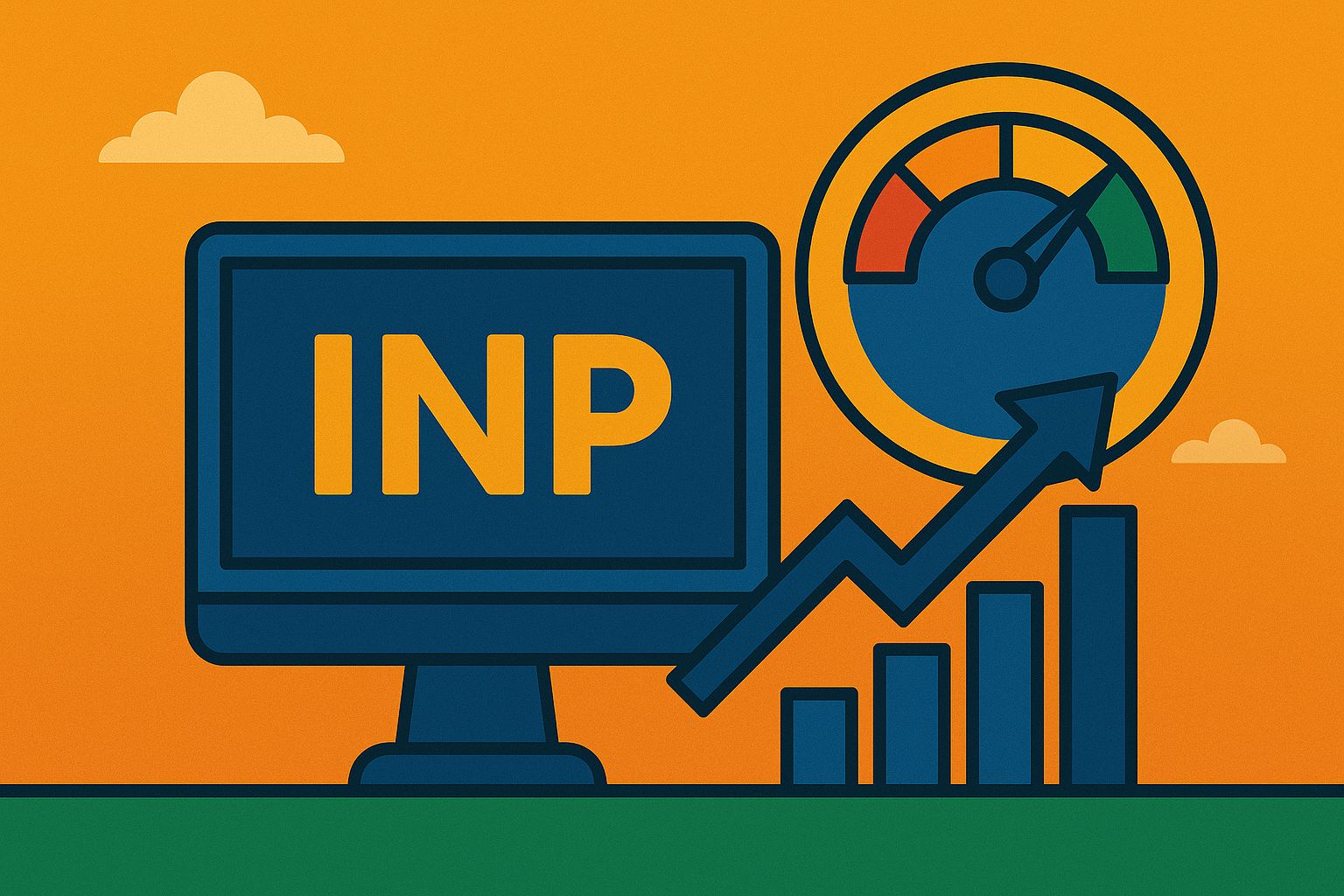Content marketing has become a cornerstone of effective business strategies, helping brands to build a strong online presence, engage with their audience, and ultimately drive sales. But what exactly is content marketing, and why is it so critical in today’s world? Content marketing is the practice of creating and distributing valuable, relevant, and consistent content to attract and retain a clearly defined audience. Unlike traditional advertising, which directly promotes products or services, content marketing focuses on delivering information that solves problems, educates, or entertains. The goal is to build a relationship with the audience, establishing trust and credibility, which can eventually lead to customer loyalty and business success.
The Evolution of Content Marketing
To truly appreciate the importance of content marketing, it’s essential to understand its evolution. Content marketing is not a new concept; in fact, its roots can be traced back centuries. Early examples include John Deere’s The Furrow magazine, launched in 1895, which provided farmers with valuable agricultural information, or Michelin’s The Michelin Guide, first published in 1900 to help drivers find accommodations and services on their travels. These publications didn’t just sell products; they provided value, established authority, and built customer loyalty. Fast forward to the digital age, and the principles of content marketing remain the same, but the tools and platforms have evolved dramatically. The internet has revolutionized how content is created, distributed, and consumed. Blogs, social media, podcasts, videos, and webinars are now integral parts of a content marketing strategy. The rise of search engines and social media platforms has also shifted power to the consumer, who now has access to vast amounts of information at their fingertips. This shift has made content marketing more important than ever, as businesses must now compete for attention in a crowded and noisy marketplace.
Why Content Marketing Matters Today
In today’s hyper-connected world, consumers are bombarded with advertisements at every turn. From social media ads to sponsored content, the average person sees thousands of marketing messages every day. As a result, traditional advertising methods are becoming less effective. Consumers have grown weary of overt sales pitches and are increasingly using ad-blockers to avoid them. This is where content marketing comes into play. Content marketing cuts through the noise by offering something of value to the audience. Rather than interrupting their experience with intrusive ads, it provides useful, engaging, and relevant information that they are actively seeking out. This approach not only captures attention but also builds trust. When a brand consistently delivers valuable content, it positions itself as an authority in its field, which can lead to stronger customer relationships and increased brand loyalty.
For students, corporate employees, marketers, creators, and writers, understanding the power of content marketing is crucial. Whether you’re a student looking to build your personal brand, a corporate employee aiming to enhance your company’s online presence, a marketer seeking to improve campaign effectiveness, or a writer or creator wanting to connect with your audience, content marketing offers a powerful tool to achieve your goals.
The Role of Content Marketing in the Buyer’s Journey
One of the key reasons content marketing is so effective is its ability to guide potential customers through the buyer’s journey. The buyer’s journey is the process that consumers go through when deciding to purchase a product or service. It typically consists of three stages: awareness, consideration, and decision.
- Awareness Stage: In the awareness stage, potential customers become aware of a problem or need. They may not yet know the solution, but they are seeking information to better understand their situation. This is where content marketing shines. By creating content that addresses the pain points and questions of your audience, you can attract their attention and position your brand as a helpful resource. Blog posts, how-to guides, and educational videos are particularly effective at this stage.
- Consideration Stage: Once the audience has identified their problem, they move into the consideration stage, where they begin exploring potential solutions. At this point, your content should provide more detailed information about how your product or service can meet their needs. Case studies, product comparison articles, and webinars are valuable content types for this stage, as they help the audience evaluate their options and move closer to a decision.
- Decision Stage: In the decision stage, the potential customer is ready to make a purchase. Content that offers reassurance and final pushes, such as customer testimonials, product demos, and special offers, can help seal the deal. By providing content tailored to each stage of the buyer’s journey, you can effectively nurture leads and convert them into loyal customers.
The Benefits of Content Marketing
The benefits of content marketing extend far beyond lead generation and sales. For businesses and individuals alike, content marketing can deliver a range of advantages, including:
- Enhanced Brand Awareness: High-quality content helps your brand get noticed and remembered in a crowded marketplace. As your content is shared and consumed, it increases your visibility and establishes your brand as a go-to resource in your industry.
- Improved Search Engine Rankings: Search engines prioritize content that is valuable, relevant, and frequently updated. By consistently publishing high-quality content, you can improve your website’s ranking in search engine results, driving more organic traffic to your site.
- Stronger Customer Relationships: Content marketing allows you to build and nurture relationships with your audience. By providing valuable content that meets their needs, you demonstrate that you understand and care about their challenges, which fosters trust and loyalty.
- Increased Engagement: Engaging content encourages your audience to interact with your brand, whether through comments, shares, likes, or other forms of engagement. This not only helps to build a community around your brand but also provides valuable feedback and insights into your audience’s preferences and interests.
- Cost-Effective Marketing: Compared to traditional advertising methods, content marketing is often more cost-effective. While it requires an investment of time and resources, the long-term benefits of content marketing, such as improved search rankings and customer loyalty, can provide a significant return on investment.
- Flexibility and Adaptability: Content marketing can be tailored to suit the specific needs and goals of your business. Whether you’re targeting B2B or B2C audiences, working in a niche industry, or aiming for global reach, content marketing offers the flexibility to adapt your strategy to your unique circumstances.
Challenges of Content Marketing
While the benefits of content marketing are clear, it’s important to acknowledge the challenges as well. Developing a successful content marketing strategy requires a significant investment of time, effort, and resources. It also requires a deep understanding of your audience, a commitment to quality, and the ability to stay adaptable in a rapidly changing digital landscape.
Some common challenges include:
- Content Saturation: With so much content being produced and shared every day, standing out from the crowd can be difficult. To overcome this challenge, it’s essential to focus on creating high-quality, unique content that truly resonates with your audience.
- Consistent Content Creation: Maintaining a consistent content production schedule can be challenging, especially for small teams or individuals. Developing a content calendar and setting realistic goals can help you stay on track.
- Measuring ROI: Unlike traditional advertising, where results can be measured directly through sales, the impact of content marketing can be more difficult to quantify. However, by tracking key metrics such as website traffic, engagement, and lead generation, you can gain valuable insights into the effectiveness of your strategy.
- Adapting to Change: The digital landscape is constantly evolving, with new platforms, algorithms, and trends emerging all the time. Staying informed and being willing to adapt your strategy as needed is crucial for long-term success.
Understanding the Importance of Content Marketing
Content marketing is more than just creating and sharing content; it’s about creating valuable, relevant content that attracts and engages your target audience. In a world where consumers are bombarded with information from all directions, content marketing helps brands stand out by providing content that addresses their needs, solves their problems, and enhances their lives. For students, corporate employees, marketers, creators, and writers, understanding the importance of content marketing is the first step toward building a strategy that resonates with your audience.
Key Benefits of Content Marketing:
- Increased Brand Awareness: High-quality content can help your brand get noticed in a crowded market.
- Audience Engagement: Content that resonates with your audience encourages them to interact with your brand.
- Lead Generation: Effective content marketing can drive leads and conversions by guiding potential customers through the sales funnel.
- Customer Loyalty: Consistent, valuable content can turn one-time customers into loyal brand advocates.
Setting Clear Objectives
Before diving into content creation, it’s crucial to define what you want to achieve with your content marketing strategy. Setting clear, measurable objectives will guide your efforts and help you stay focused on your goals. Whether you’re aiming to increase website traffic, generate leads, boost social media engagement, or enhance brand loyalty, your objectives should align with your overall business goals.
How to Set Effective Objectives:
- Be Specific: Clearly define what you want to achieve (e.g., “Increase blog traffic by 20% in the next six months”).
- Make it Measurable: Ensure your objectives can be quantified (e.g., “Generate 100 new leads per month”).
- Ensure Relevance: Your objectives should align with your broader marketing and business goals.
- Set a Timeline: Establish a clear timeframe for achieving your objectives.
Conducting Audience Research
A winning content marketing strategy is built on a deep understanding of your target audience. Knowing who your audience is, what they care about, and how they consume content is essential for creating content that resonates with them. For students, corporate employees, marketers, creators, and writers, conducting thorough audience research will provide valuable insights into the types of content that will capture their attention and meet their needs.
Steps to Conduct Audience Research:
- Identify Your Target Audience: Define your ideal audience based on demographics, interests, and behavior.
- Analyze Competitor Audiences: Look at who your competitors are targeting and how they engage with their audience.
- Use Analytics Tools: Utilize tools like Google Analytics, social media insights, and surveys to gather data on your audience.
- Create Audience Personas: Develop detailed personas that represent your different audience segments.
Crafting a Content Plan
Once you have a clear understanding of your audience, the next step is to develop a content plan. This plan should outline the types of content you will create, how often you will publish, and the channels you will use to distribute your content. A well-crafted content plan ensures consistency and helps you stay organized, making it easier to achieve your content marketing objectives.
Components of a Content Plan:
- Content Types: Determine the types of content you will create (e.g., blog posts, videos, infographics, case studies).
- Content Calendar: Create a content calendar that outlines your publishing schedule.
- Content Distribution Channels: Identify the platforms where you will share your content (e.g., website, social media, email newsletters).
- Content Themes: Define the key themes or topics that will guide your content creation efforts.
- Resource Allocation: Plan for the resources needed to create and distribute your content, including time, budget, and personnel.
Creating High Quality Content
At the heart of any successful content marketing strategy is the creation of high-quality content. Quality content is not only informative and engaging but also aligns with the needs and interests of your audience. Whether you’re a student, corporate employee, marketer, creator, or writer, focusing on quality over quantity is essential for building a winning content marketing strategy.
Tips for Creating High-Quality Content:
- Be Original: Offer unique insights and perspectives that set your content apart from the competition.
- Provide Value: Ensure your content is helpful, informative, and relevant to your audience.
- Tell a Story: Use storytelling techniques to make your content more relatable and engaging.
- Optimize for SEO: Incorporate relevant keywords, meta descriptions, and headers to improve your content’s visibility in search engines.
- Use Visuals: Enhance your content with images, videos, and infographics to make it more engaging and easier to digest.
Leveraging Content Distribution Channels
Creating great content is only half the battle; you also need to ensure it reaches your target audience. Leveraging the right content distribution channels is crucial for maximizing the reach and impact of your content. Depending on your audience, different channels may be more effective, so it’s important to understand where your audience spends their time and how they prefer to consume content.
Popular Content Distribution Channels:
- Social Media: Platforms like Facebook, LinkedIn, Instagram, and Twitter are ideal for reaching a broad audience and encouraging engagement.
- Email Marketing: Email newsletters are a powerful way to deliver content directly to your audience’s inbox.
- Search Engine Optimization (SEO): Optimizing your content for search engines ensures it ranks higher in search results, driving organic traffic to your site.
- Content Syndication: Partner with other websites and platforms to syndicate your content, expanding its reach.
- Paid Advertising: Use paid campaigns on social media and search engines to boost the visibility of your content.
Measuring and Analyzing Performance
To build a winning content marketing strategy, it’s essential to continuously measure and analyze the performance of your content. Understanding what works and what doesn’t allows you to refine your strategy over time, ensuring you consistently meet your objectives. For students, corporate employees, marketers, creators, and writers, developing the skills to analyze content performance is crucial for long-term success.
Key Metrics to Track:
- Traffic: Monitor the number of visitors to your content and where they’re coming from.
- Engagement: Track likes, shares, comments, and other forms of engagement on your content.
- Conversion Rate: Measure the percentage of visitors who take a desired action (e.g., signing up for a newsletter, making a purchase).
- Bounce Rate: Analyze the percentage of visitors who leave your site after viewing only one page.
- Time on Page: Track how long visitors spend consuming your content.
Adapting to Trends and Changes
The digital marketing landscape is constantly evolving, and content marketing is no exception. To stay competitive, it’s important to keep up with the latest trends and adapt your strategy accordingly. Whether it’s new content formats, emerging distribution channels, or changes in audience behavior, staying agile and responsive to trends will help you maintain a winning content marketing strategy.
Current Trends in Content Marketing:
- Interactive Content: Quizzes, polls, and interactive infographics are gaining popularity for their ability to engage audiences.
- Video Content: Video continues to dominate as a preferred content format, with platforms like YouTube, TikTok, and Instagram leading the way.
- Voice Search Optimization: With the rise of smart speakers and voice assistants, optimizing content for voice search is becoming increasingly important.
- Personalization: Tailoring content to individual preferences and behaviors is key to increasing engagement and conversions.
- Sustainability Messaging: As consumers become more environmentally conscious, content that highlights sustainability and ethical practices is resonating with audiences.
Building a Strong Content Team
Behind every successful content marketing strategy is a team of skilled professionals who bring the strategy to life. Whether you’re a small business or a large corporation, building a strong content team is essential for executing your strategy effectively. For students, corporate employees, marketers, creators, and writers looking to break into the field of content marketing, understanding the roles and responsibilities within a content team is invaluable.
Key Roles in a Content Marketing Team:
- Content Strategist: Develops the overall content strategy and ensures it aligns with business goals.
- Content Writer: Creates written content, including blog posts, articles, and social media posts.
- Graphic Designer: Produces visual content, including images, infographics, and videos.
- SEO Specialist: Optimizes content for search engines to improve visibility and drive organic traffic.
- Social Media Manager: Manages content distribution across social media platforms and engages with the audience.
- Content Analyst: Tracks and analyzes content performance to inform future strategies.
Continuous Learning and Improvement
Finally, a winning content marketing strategy is one that evolves over time. The most successful content marketers are those who are committed to continuous learning and improvement. By staying informed about industry trends, experimenting with new tactics, and analyzing the results, you can ensure that your content marketing strategy remains effective and relevant.
Tips for Continuous Improvement:
- Attend Industry Conferences: Stay up-to-date with the latest trends by attending content marketing conferences and workshops.
- Experiment with New Formats: Don’t be afraid to try new content formats or distribution channels to see what works best for your audience.
- Solicit Feedback: Regularly ask for feedback from your audience, peers, and team members to understand what resonates and what could be improved. This feedback loop is crucial for refining your content strategy over time.
- Review Competitor Strategies: Analyze what your competitors are doing in terms of content marketing. Identify their strengths and weaknesses, and use this information to improve your own strategy.
- Stay Updated on Algorithm Changes: Search engines and social media platforms frequently update their algorithms, which can impact how your content is discovered. Stay informed about these changes to adjust your strategy accordingly.
- Refine Your Audience Personas: As your audience evolves, so should your understanding of them. Continuously update your audience personas based on new data and insights.
- Benchmark Your Progress: Regularly compare your performance against industry benchmarks to assess how your strategy stacks up. This will help you identify areas for improvement and set realistic goals for growth.
Conclusion
Building a winning content marketing strategy from the ground up requires a methodical approach, a deep understanding of your audience, and a commitment to continuous improvement. By setting clear objectives, conducting thorough audience research, creating high quality content, and leveraging the right distribution channels, you can develop a strategy that not only meets your business goals but also resonates with your audience. For students, corporate employees, marketers, creators, and writers, mastering the art of content marketing is an invaluable skill that can drive success in any professional endeavor. As the digital landscape continues to evolve, staying informed, adaptable, and committed to quality will ensure that your content marketing strategy remains effective and impactful. In today’s competitive market, where content is king, those who invest in a well-crafted content marketing strategy will be the ones to reign supreme. Whether you are just starting out or looking to refine an existing strategy, the insights shared in this guide provide a solid foundation for building a content marketing strategy that delivers measurable results and long-term success.




